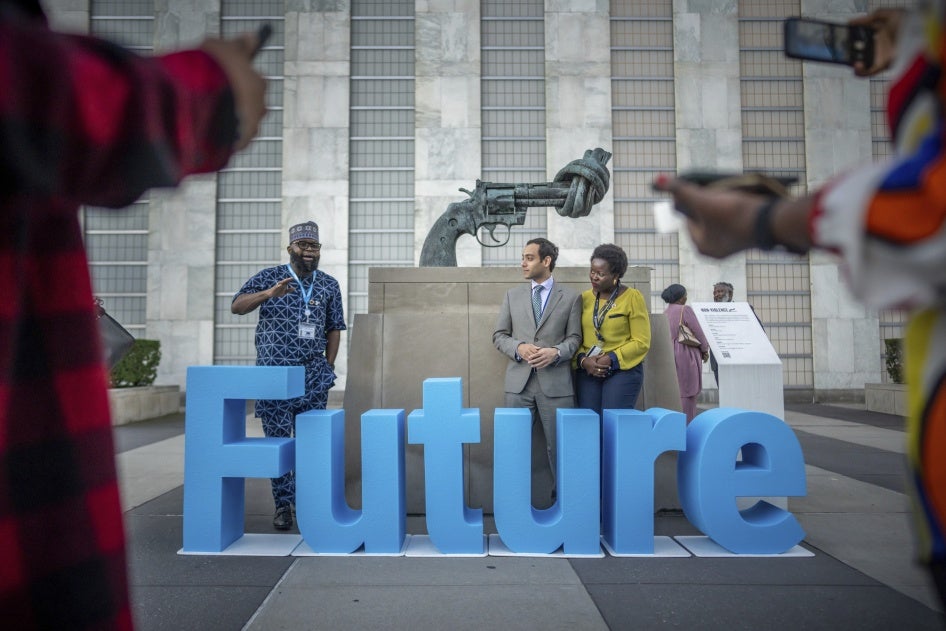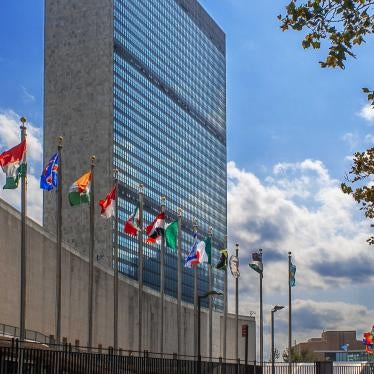Global critics of the international financial architecture say the system is broken. As Brazilian President Lula da Silva said today addressing the United Nations General Assembly, it’s become “the Marshall Plan in reverse where the poorest finance the richest.” From realizing people’s socioeconomic rights to tackling climate change, the laws and institutions that make up the global economic system are seen to benefit wealthy countries while leaving many governments, particularly in the Global South, without the resources they need to realize everyone’s rights.
On Sunday, despite Russia’s attempt to derail the vote, UN member countries approved the “Pact for the Future,” meant to reinvigorate global action to confront the world’s most pressing crises, including a pervasive failure to achieve sustainable development.
The pact rightly recognizes “rising catastrophic and existential risks” around the world and the necessity of international law, including human rights, to successfully navigate them. It also emphasizes the interdependence of sustainable development and human rights, and that this entails achieving progress in areas such as universal health care, quality and inclusive education, and universal social security.
As one of the key tools to achieve these goals, the pact commits to reforming the international financial architecture (IFA). Buried in the pact is a potential milestone in this effort: a request that the UN secretary-general establish an independent high-level expert group to develop recommendations for new measures of economic well-being that complement or go beyond Gross Domestic Product (GDP), deliver the recommendation at next year’s UN General Assembly, and initiate a UN-led process to implement them. As the UN special rapporteur on extreme poverty and human rights has said, the focus on GDP growth has contributed to soaring inequality and environmental devastation.
The attention to economic indicators significantly expands the vision for IFA reform, which has often emphasized giving historically underrepresented countries a greater voice in the governance of the International Monetary Fund and World Bank and scaling up financing available to them. Governance reform is particularly important and long overdue, as current structures mirror post-World War II colonial power dynamics, giving governments most affected by these institutions the least voice in how they operate.
The pact’s commitments on these two goals fall far short, but it is no small feat to transform a system producing such vast economic inequalities within and between countries that undermine human rights. To do so would mean shifting the economic paradigms embedded within the global economic system to center people and planet in line with states’ human rights obligations, a concept that the UN Office of the High Commissioner for Human Rights (OHCHR) and others have referred to as a human rights economy.
While moving beyond GDP may seem like a technical point, it could herald a new stage in the demand for economic justice.









